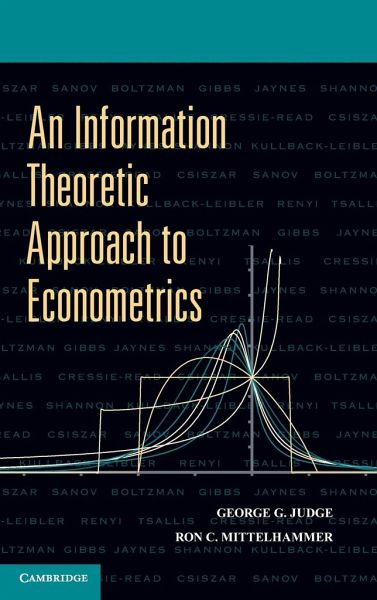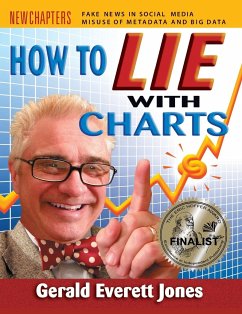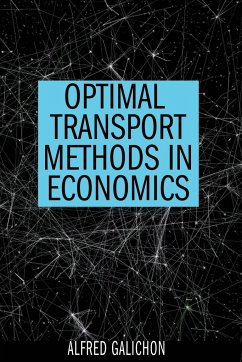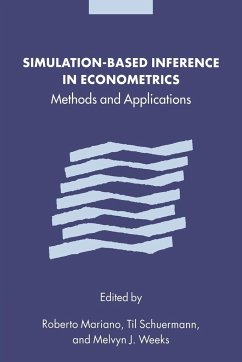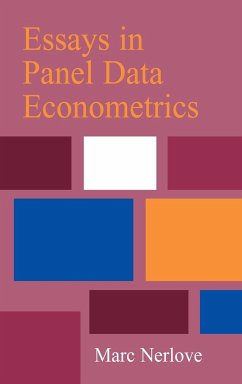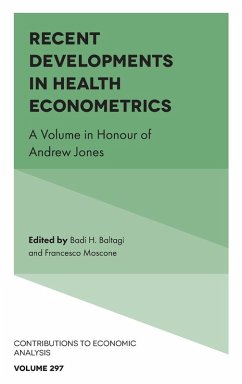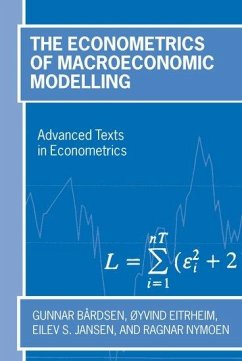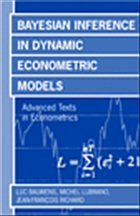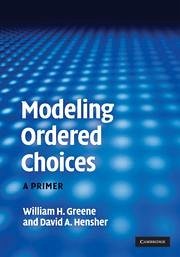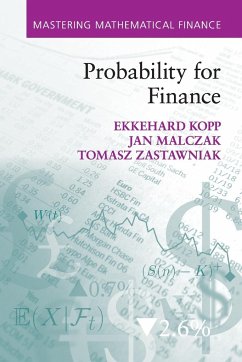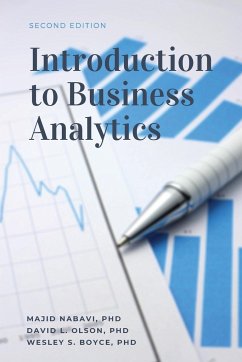An Information Theoretic Approach to Econometrics
Versandkostenfrei!
Versandfertig in 1-2 Wochen
Weitere Ausgaben:

PAYBACK Punkte
42 °P sammeln!





Intended to provide the reader with a firm conceptual and empirical understanding of basic information-theoretic econometric models and methods.
George G. Judge is a Professor at the University of California, Berkeley. Professor Judge has also served on the faculty of the University of Illinois, University of Connecticut, and Oklahoma State University and has been a visiting professor at several US and European universities. He is the coauthor or editor of 15 books in econometrics and related fields and author or coauthor of more than 150 articles in refereed journals. His research explores specification and evaluation of statistical decision rules, improved inference methods, and parametric and semiparametric estimation and information recovery in the case of ill-posed inverse problems with noise. Judge is a Fellow of the Econometric Society and the American Agricultural Economics Association.
Produktdetails
- Verlag: Cambridge University Press
- Seitenzahl: 250
- Erscheinungstermin: 23. Februar 2012
- Englisch
- Abmessung: 235mm x 157mm x 18mm
- Gewicht: 518g
- ISBN-13: 9780521869591
- ISBN-10: 0521869595
- Artikelnr.: 33765252
Herstellerkennzeichnung
Libri GmbH
Europaallee 1
36244 Bad Hersfeld
gpsr@libri.de
'Taking us beyond traditional econometric estimation and inference, this landmark text leads us carefully through the modern literature on empirical likelihood methods to an extremely compelling new methodology. The authors present a clear and compelling case for recognizing econometric problems for what they really are - namely, ill-posed noisy inverse problems. By showing how very general information-theoretic methods can be used in a natural way to solve such problems, Judge and Mittelhammer break new ground and set a new standard for the econometric community.' David Giles, University of Victoria, Canada
Für dieses Produkt wurde noch keine Bewertung abgegeben. Wir würden uns sehr freuen, wenn du die erste Bewertung schreibst!
Eine Bewertung schreiben
Eine Bewertung schreiben
Andere Kunden interessierten sich für




